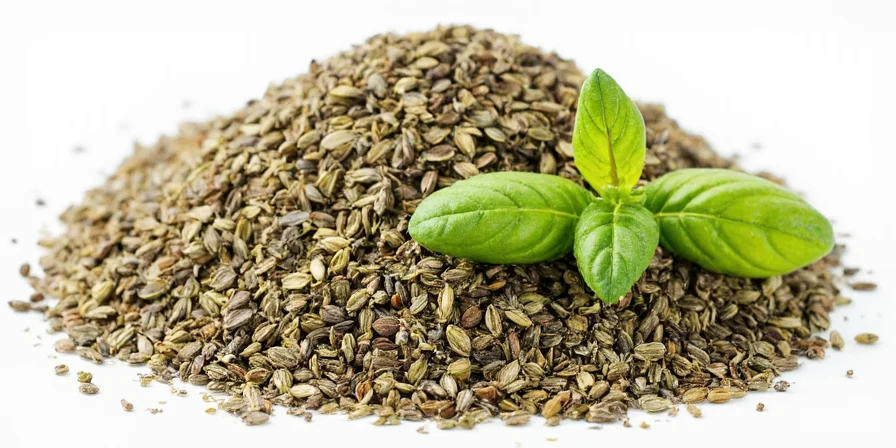Italian Herbs: The Heart of Mediterranean Cuisine
Italian herbs are essential components of Italian cooking, bringing depth and flavor to a myriad of dishes. From aromatic basil to robust oregano, these herbs not only enhance the taste but also embody the essence of Italy's rich culinary heritage.
The Importance of Fresh Herbs in Italian Cooking
In Italian cuisine, the use of fresh herbs is paramount. They are often used in their natural state, providing vibrant flavors that dried herbs simply cannot replicate. Fresh herbs are often added at the end of cooking to maintain their delicate flavor and aroma.
Common Italian Herbs
Here are some of the most popular Italian herbs, each with its unique flavor profile and culinary uses:
- Basil: Known as il re delle erbe (the king of herbs), basil is a staple in Italian kitchens, especially in dishes like pesto and Caprese salad.
- Oregano: This herb is often used in sauces, pizza, and grilled meats. Its strong flavor complements tomato-based dishes beautifully.
- Parsley: Bright and versatile, parsley is often used as a garnish but also adds freshness to soups and salads.
- Rosemary: With its woody, pine-like flavor, rosemary pairs well with roasted meats and potatoes.
- Thyme: This herb has a subtle earthy flavor that works well in stews, marinades, and vegetable dishes.
- Sage: Known for its strong, aromatic flavor, sage is often used in rich dishes, particularly with meats and in stuffing.
- Fennel: The fronds of the fennel plant are used for flavoring and garnishing, often in salads and fish dishes.
Using Italian Herbs in Cooking
Understanding how to use these herbs effectively can transform your dishes from ordinary to extraordinary. Here are some tips:
1. Fresh vs. Dried Herbs
While fresh herbs are preferred for their vibrant flavor, dried herbs are more potent and can be used in longer-cooking dishes. As a general rule, use three times the amount of fresh herbs as you would dried.
2. Timing is Everything
When cooking, the timing of when you add herbs can significantly affect the taste:
- Fresh herbs: Add them towards the end of cooking to preserve their flavor.
- Dried herbs: Add them earlier in the cooking process to allow their flavors to infuse into the dish.
3. Experimenting with Combinations
Italian herbs can be combined in various ways to create unique flavor profiles:
| Herb Combination | Dish Ideas |
|---|---|
| Basil + Oregano | Marinara sauce or pizza |
| Rosemary + Thyme | Roasted chicken or potatoes |
| Sage + Parsley | Stuffing or risotto |
Growing Your Own Italian Herbs
If you're passionate about cooking, consider growing your own Italian herbs. Not only is it rewarding, but it also ensures you have fresh herbs at your fingertips. Here are some tips:
1. Choosing the Right Location
Most Italian herbs thrive in full sunlight, so pick a spot in your garden or on your windowsill that receives plenty of light.
2. Soil Preparation
Use well-draining soil enriched with compost. Herbs do not like to sit in water, so ensure proper drainage.
3. Care and Maintenance
- Watering: Water regularly but allow the soil to dry out between watering.
- Pruning: Regularly trim your herbs to encourage growth and prevent them from flowering too soon.
Storing Italian Herbs
To maintain the freshness of your herbs, proper storage is essential:
- Fresh Herbs: Store in the refrigerator wrapped in a damp paper towel inside a plastic bag.
- Dried Herbs: Keep in a cool, dark place in airtight containers to preserve their flavor.
Italian Herbs in Popular Dishes
Let’s explore how these herbs can be utilized in some classic Italian dishes:
1. Pasta Dishes
In pasta dishes, herbs like basil and oregano are frequently used in sauces, enhancing the flavor of tomatoes and meats.
2. Pizza
Italian pizza is often topped with a mix of oregano, basil, and sometimes thyme, creating a beautifully aromatic dish.
3. Risottos and Soups
Herbs such as parsley, sage, and thyme are popular in risottos and soups, adding layers of flavor.
4. Meat and Fish
Rosemary and sage are commonly used in marinades for meats, while fennel pairs beautifully with fish.
Conclusion
Italian herbs are more than just flavoring agents; they are an integral part of the culinary identity of Italy. By understanding their uses, growing them at home, and incorporating them into your cooking, you can transport yourself to the sun-kissed hills of Italy, one dish at a time.











 浙公网安备
33010002000092号
浙公网安备
33010002000092号 浙B2-20120091-4
浙B2-20120091-4